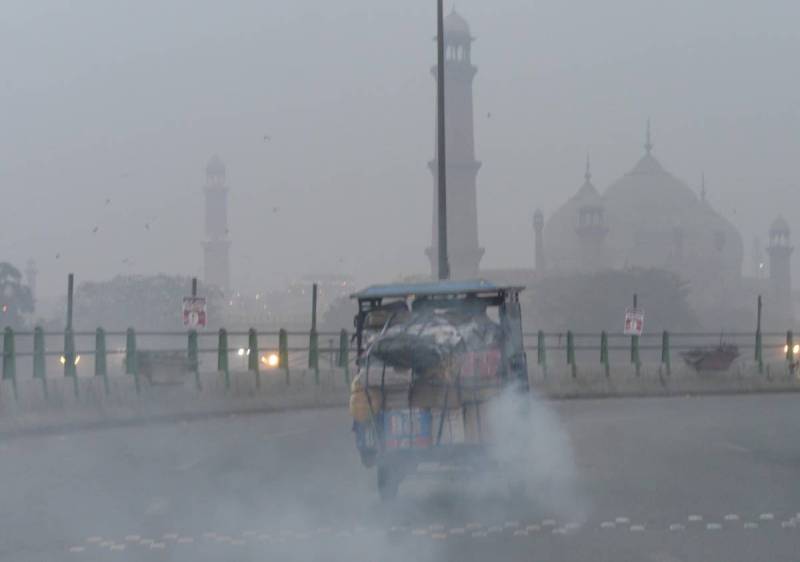Air pollution in Pakistan reduces life span by 3.8 years
Shares

ISLAMABAD – At least 8 million people succumbed to air pollution every year, a new study unveiled staggering revelations.
Burning coal and oil disturb solar radiation and cause global warming while it also releases tiny poisonous particles, PM2.5, which are small enough to penetrate into human lungs and can aggravate respiratory conditions like asthma and can lead to lung cancer, coronary heart disease, strokes, and early death.
Researchers from Harvard collaborating with the universities of Birmingham, Leicester have reported that fossil fuel pollution has shortened the average lifespan in Pakistan by 3.8 years.
Air pollution has reduced lives by more than two years on average worldwide, and at least eight months on average in European countries.
Asia remained the worst-hit region as the average lifespan has been reduced by 4.1 years in China and 3.9 years in India.
' link
The recent study has also found a link between higher levels of long-term pollution and more deaths from the ongoing Covid-19 pandemic.
Earlier on Monday, Lahore has been ranked as the second most atmospherically-polluted city in the world as the US Air Quality Index (AQI) highlighted a dismal score of 247 on Monday. Air monitoring agency live monitors show that Lahore is only preceded by Delhi (308 US AQI score).
